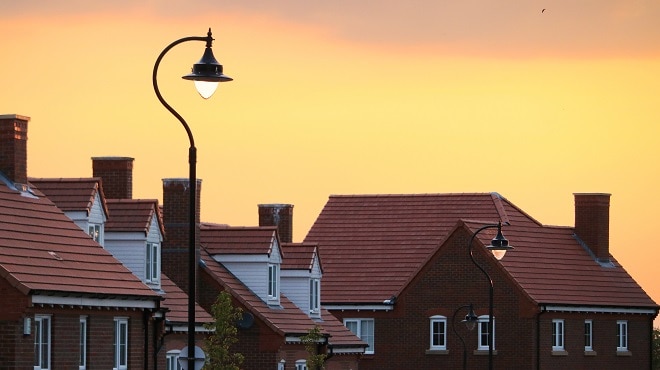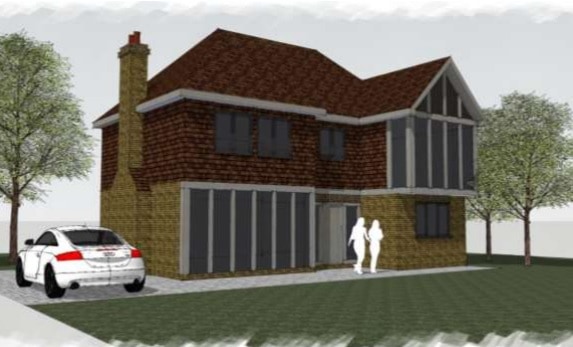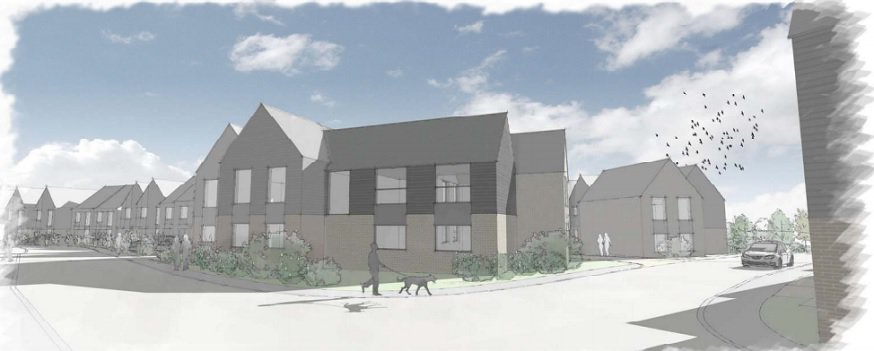
Concerns have been raised after Thanet council agreed to slash the affordable housing numbers on two planning applications this month (May).
Members of the Salmestone Residents Association committee and South Thanet Labour Party members say profits are being put before people as developers apply to have the affordable housing quotas cut on developments due to rising costs.
This month applications were agreed by council planning members to swap out the affordable home commitment of four properties on a 14-home build in Ramsgate for a cash payment instead and to reduce an agreement for nine affordable homes to four on a 43-home development on land at the rear of Kingston Avenue, Garlinge.

The planning application for 14 homes on land at Chilton Lane and Canterbury Road East was approved in July last year subject to an acceptable Section 106 agreement securing 30% affordable units and other financial contributions.
But applicant Rob Smith, of The Foreland Partnership, then submitted a request to axe the affordable homes in favour of a £166,288 payment instead.
In a report to councillors it states the site, which is 0.81 hectares of agricultural land, has a land value of £160,000 and an indicated development value of £6,150,000 if all the homes are private sale.
The projected cost of developing the site is £5,823,712. The report adds that a developer profit allowance of 17.5% of GDV of the market housing and 6% on the affordable housing has been assumed within the viability report, with a total profit of £1,076,250.
Recommending the cash contribution, the planning officer report states: “The figures produced through the viability report show that the site would be unlikely to support a reduction in GDV that would result from the provision of 4 affordable units.
“The reduction would compromise the deliverability of the scheme from an insufficient incentive for the land to come forward for development. Therefore, for both viability and practical reasons, the provision of on-site affordable housing is not considered achievable.”

The Garlinge planning application is for 43 homes made up of eight 2-bed flats, seven 2-bed dwellings, 25 three-bed dwellings and three 4-bed dwellings, on land rear of 2 to 28 Kingston Avenue. It was approved last May.
The agreement was for nine affordable homes but applicants Bill and Ann Brazil requested this be reduced to four 2-bed flats – equalling 9% affordable housing rather than the previously agreed 20%.
A report to councillors says the current value of the land is estimated as £16,800 with a gross development value of £10,260,000 based on 91% private market housing and 9% affordable housing. The report says developer profit would be £1,539,000.
The affordable housing prices have been estimated at £105,000 for a 2-bed flat on the basis of a reduced value of 60% of the development value. Originally values for the affordable units were based on 80% but in this locatio registered housing providers are only willing to offer 60%.
Recommending the application for approval the planning officer states: “It is considered that the resulting residual land value is reasonable in view of the evidence received, and as such it would also appear reasonable to expect no more than 9% affordable housing to be provided on this basis.
“The affordable housing provision is in the form of 4no. 2-bed flats, which the Housing Strategy Officer considers to be acceptable given that the highest housing need currently on the council’s register is for one and two bedroom units.”
Both developments were approved by the planning committee. Two Labour councillors voted against the proposals.
‘Profit before people’
Members of the Salmestone committee say the reductions ‘set a dangerous precedent.”
Treasurer John Finnegan added: “Both of these developers want to cut the number of affordable housing they had agreed to build. Why? Because their profit margins have been cut. So, it’s profit before people. My heart bleeds for the developers, but this is wrong.
“T.D.C. councillors voted in favour of the developers. I am afraid we have a council that is run by councillors with no fight in them. They are a soft touch for any developer that cries a hard luck story.”
Members Terence and Elaine Ruck added: “The developers do not have a “get out of jail free” card and should be made to continue with their agreement or if they refuse to build be made to pay for someone else to complete it for them. Perhaps then with this threat of losing even more money they will be taken seriously and commit to projects without fail.
“TDC is setting a very dangerous precedent here.”
The committee has now vowed to have a member at every Thanet planning meeting to record further affordable housing cuts.
Thanet Labour Party members have also branded the decisions as profits before people.
‘Poor precedent’
Broadstairs Branch chairperson Fiona Crawford said: “Two prospective developments were given the go ahead by TDC. Both were supposed to have provision for affordable, council housing but because of land costs taking away from profit, the developers changed their criteria, decreasing provision previously agreed.
“In a time when affordable and social housing is in crisis, homelessness is rising, how can these decisions be acceptable? Only two councillors voted against this – Labour councillors Michelle Fenner and Jenny Matterface, who are closer to the problems people are facing with universal credit and their increasing financial difficulties.
“This planning decision set a very poor precedent for the more vulnerable in our society and its time that our councillors and MPs start fighting for the needs of our constituents.”
Affordable homes
The government definition of affordable housing states it must be at a level where mortgage payments on the property are more than would be paid in rent on council housing but below market levels.
Since 2012, national planning rules have changed to allow the use of viability assessments. These are appraisals of the amount of profit a developer can expect to make on a scheme. If expected profits are below 20%, the number of affordable homes the developer is required to build under Section 106 agreements can be knocked down.

